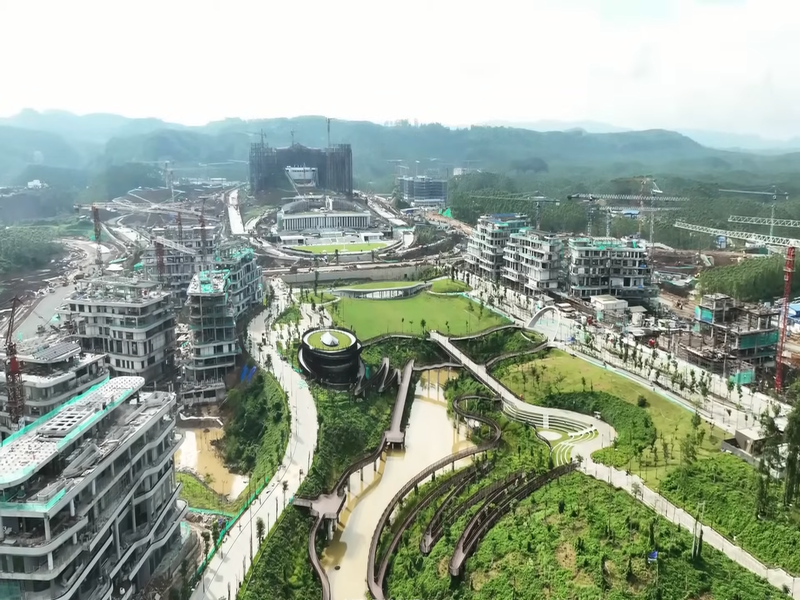
Independent Report – The capital city of Nusantara (IKN) in East Kalimantan is under construction to become Indonesia’s new center of government by 2028. To meet this target, key infrastructure, especially in the legislative and judicial sectors, needs to be completed. Government buildings such as the DPR/MPR/DPD, the Supreme Court, and other legal institutions are top priorities in this development. Without this infrastructure, the government functions in IKN won’t operate optimally.
President Prabowo Subianto aims for the executive, legislative, and judicial branches to start operating in IKN within the next three years. This project is expected to improve governance and increase decision-making efficiency. The government allocated Rp48.8 trillion in the 2025 state budget to speed up construction. The Nusantara Capital Authority (OIKN) and the Ministry of Public Works and Public Housing (PUPR) are responsible for adapting the design of the legislative and judicial areas to international standards.
The project includes various aspects, from government offices to housing for state officials. With adequate infrastructure, IKN will become a new hub for political and legal decision-making in Indonesia. This move also aims to support more equitable development outside of Java, ensuring that Jakarta is not the sole center of national activities.
As the political capital, IKN will house the president’s office, ministries, and other key institutions. Jakarta will remain the economic and business center, while IKN will serve as the administrative government center. Making IKN the political capital reflects the government’s long-term vision for equitable development and improved bureaucratic efficiency.
This project faces challenges, particularly in coordination between agencies and funding. Therefore, collaboration among various parties is essential to keep construction on track. The government also plans to use alternative financing models such as Public-Private Partnerships (PPP) to ensure the project continues smoothly.
A major priority in IKN’s development is completing government buildings for the legislative and judicial branches. Additionally, housing for officials must be ready for government operations to proceed smoothly. The tender process for building legislative and judicial structures worth Rp11.2 trillion will begin in February 2025. The goal is to complete this phase by 2028, which will include the main buildings, official housing, and supporting infrastructure.
Besides government buildings, supporting infrastructure is equally crucial. Roads, electricity, clean water, hospitals, and shopping centers must be in place for comfortable living in IKN. These facilities will support government functions while also making the city a livable place.
Accessibility to IKN is key for smooth government activities. The government is working to create proper transportation routes to ensure the mobility of officials and the public within the area. Development of the 2nd Development Area (WP 2) in IKN is a priority for improving accessibility.
The government has allocated Rp48.8 trillion in the 2025 state budget to ensure the project proceeds according to plan. This funding will be used to build the legislative and judicial complex along with other supporting infrastructure. With this budget, the second stage of development, from 2025 to 2029, should run smoothly and meet its goals.
In addition to the state budget, the government is using PPP schemes for more flexible funding. This approach allows the project to continue without relying entirely on state funds. The success of the project depends on cooperation between the central government, local governments, and the private sector.
The PUPR Ministry and OIKN design the legislative and judicial office complex with good governance standards as a key focus. They include not just government buildings but also facilities like official housing, integrated transport, and green spaces for comfort in their design.
The development of IKN divides into several main phases, starting with building basic infrastructure like roads and transport facilities. The next stages will build supporting facilities, including housing and commercial areas. The authorities expect all major elements to be fully operational by 2028.
This project requires strong collaboration to stay on track. With good cooperation between the central government, local governments, and the private sector, they can complete IKN as Indonesia’s political capital on time. The project’s success will bring significant benefits, such as more balanced development, reduced pressure on Jakarta, and stronger, more efficient governance.
Also Read : Discrimination against Hijab-wearing Women and the Role of World Hijab Day